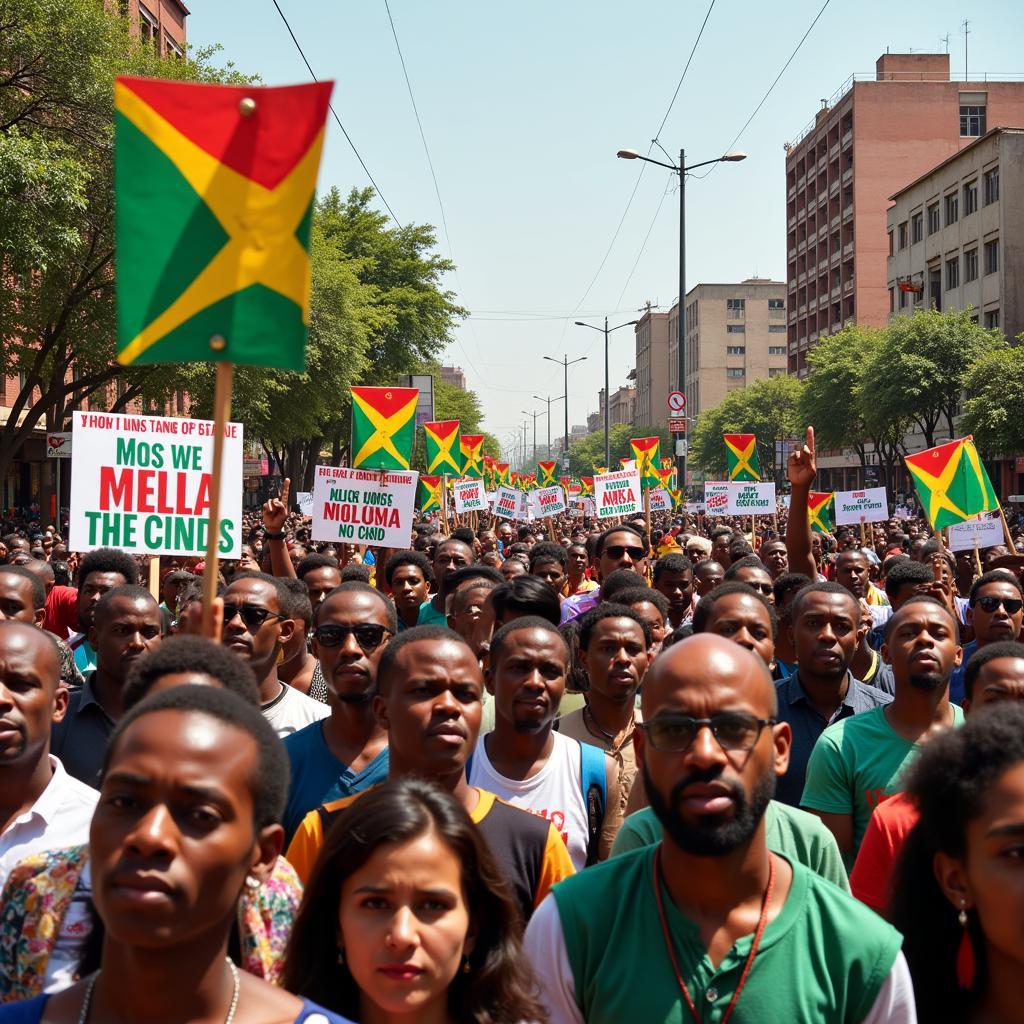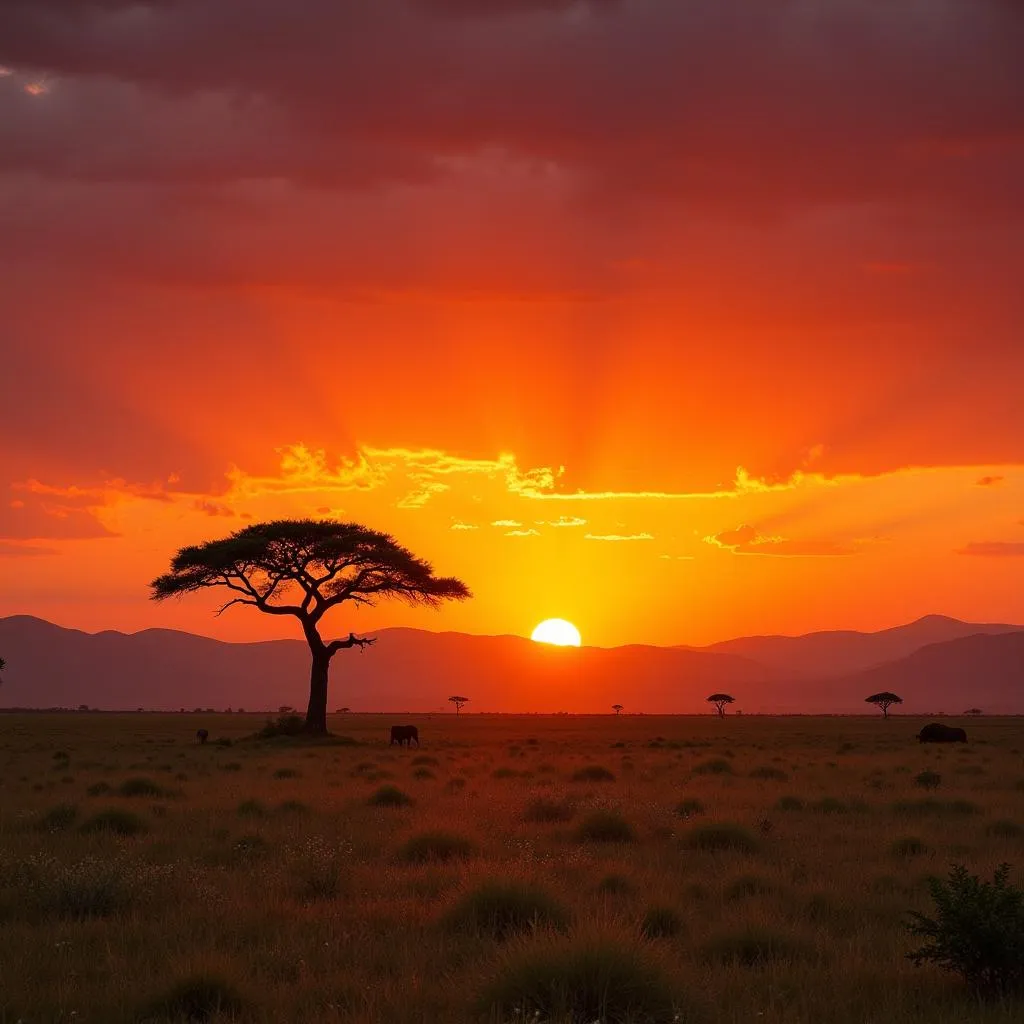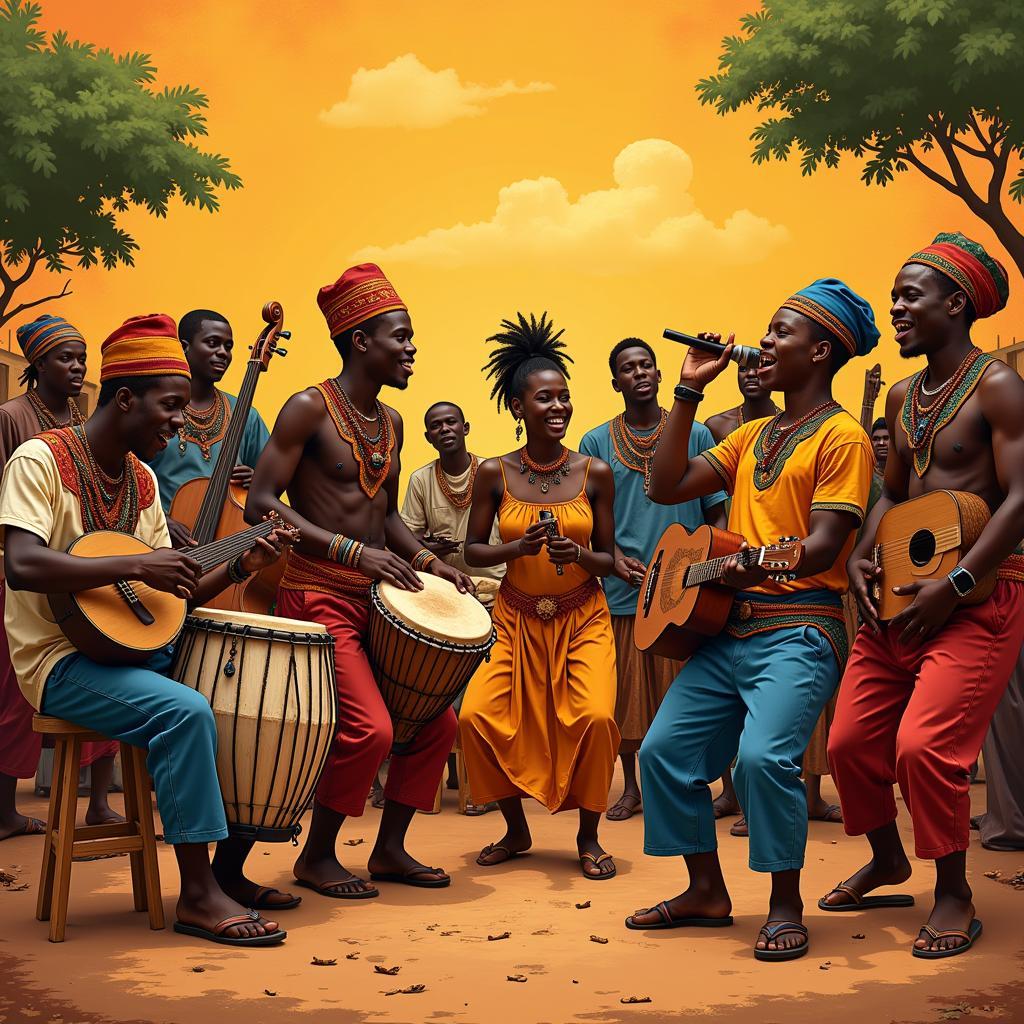Uncovering the “African Gandhi”: A Deeper Look
The term “African Gandhi” often surfaces in discussions about African leaders and their impact. It’s a title bestowed upon individuals who, like Mahatma Gandhi, championed non-violent resistance and social change across the African continent. But who exactly are these figures, and what does this moniker truly signify? This article delves into the complexities of this comparison, exploring the lives and legacies of prominent African leaders often associated with the title and the nuances of applying such a label.
Who is Called the “African Gandhi”?
Several figures have been dubbed the “African Gandhi” throughout history, each with their own unique story and contribution to their respective nations. Often, this title points to leaders who embraced peaceful methods of resistance against colonial rule or oppressive regimes. This comparison raises important questions about leadership, influence, and the global impact of non-violent movements.
Kwame Nkrumah, the first president of Ghana, is one such figure. His pivotal role in Ghana’s independence movement, coupled with his advocacy for Pan-Africanism, earned him the title in some circles. Similarly, Julius Nyerere, Tanzania’s first president, is another leader often mentioned in this context, particularly for his emphasis on Ujamaa, a socialist philosophy focused on community and self-reliance. Understanding the specific context and contributions of these leaders is key to understanding the complexities of the “African Gandhi” label. For example, some might argue that Nyerere’s socialist leanings differ significantly from Gandhi’s philosophy. african gandhi who
The Nuances of the “African Gandhi” Title
While the title “African Gandhi” offers a convenient shorthand for describing leaders who embraced non-violent resistance, it’s crucial to acknowledge the nuances and potential pitfalls of such a comparison. Each African nation and its leaders faced unique challenges, from specific colonial powers to internal conflicts and diverse cultural landscapes. Directly comparing these individuals to Gandhi overlooks the particularities of their struggles and achievements. Furthermore, the term can inadvertently overshadow other crucial aspects of their legacies, reducing their multifaceted contributions to a simplified comparison.
Beyond the Label: Examining Individual Legacies
Moving beyond the simplified “African Gandhi” label allows us to appreciate the unique contributions of these leaders in their respective contexts. For instance, Kenneth Kaunda of Zambia championed a philosophy of “Humanism,” distinct from both Gandhi’s and Nyerere’s approaches. His leadership during Zambia’s early years of independence was marked by a commitment to national unity and economic development. african gandhi wikipedia Examining figures like Kaunda through their own philosophies and actions provides a richer understanding of their legacies. Did their methods differ significantly from Gandhi’s? Were their aims similar or driven by different societal needs?
The Impact of Non-Violent Resistance in Africa
Regardless of the complexities of the “African Gandhi” title, the impact of non-violent resistance in Africa cannot be overstated. From the fight against apartheid in South Africa to independence movements across the continent, peaceful protest played a pivotal role in shaping the political landscape. These movements demonstrated the power of collective action and the resilience of the human spirit in the face of oppression. How did these movements adapt Gandhi’s principles to their specific contexts? What were the successes and challenges they encountered? african gande These are important questions to consider when exploring the legacy of non-violent resistance in Africa.
 Non-Violent Resistance and African Independence
Non-Violent Resistance and African Independence
In conclusion, the term “African Gandhi” serves as a starting point for exploring the rich and complex history of African leadership and resistance movements. While the comparison offers a useful framework, it’s essential to move beyond this simplified label to appreciate the unique contributions of individual leaders and the specific challenges they faced. Understanding their individual philosophies, strategies, and legacies provides a deeper insight into the diverse tapestry of African history and the enduring power of non-violent resistance. african gahdhi
FAQ
- What does the term “African Gandhi” mean?
- Who are some figures often called the “African Gandhi”?
- Why is the comparison to Gandhi sometimes problematic?
- What is the significance of non-violent resistance in African history?
- How did different African leaders adapt Gandhi’s philosophies to their own contexts?
- What are some resources for learning more about these leaders and their movements?
- How does studying these figures enrich our understanding of African history?
Need further assistance? Please contact us: Phone: +255768904061, Email: kaka.mag@gmail.com, or visit our office in Mbarali DC Mawindi, Kangaga, Tanzania. We have a 24/7 customer support team ready to help.



